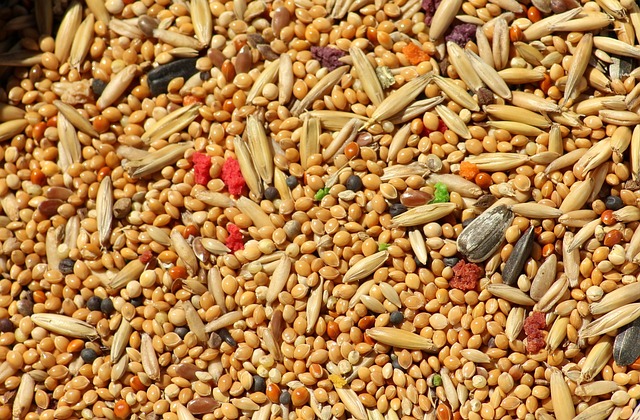Balanced Nutrition
Humans consume food to ensure life existence since it provides energy for our bodies. Food contains nutrients that nourish the body and also keeping it healthy and disease-free. To meet such a demand, we must focus on Balanced Nutrition.
“Balanced nutrition signifies acquiring nutrients in a manner that is based on someone’s dietary requirements.” Having meals in a balanced manner provides the body with nutrients it requires at the right moment.
Why Balanced Nutrition is important?
In order to maintain optimal physical health, immunity, overall fitness, bone health, and emotional and mental equilibrium, one must constantly eat a healthy diet. Thus, every necessary vitamin in the right amounts has to be included in our diet.
All age groups—from young toddlers to the elderly—need it because of their gender, physiological conditions, and level of physical activity.
Consuming such a balanced meal on a regular basis helps young children develop physically and mentally to their full potential. A youngster may have healthy bones, be the perfect weight and height.
A balanced diet is especially important as individuals age because they may have a number of problems including decreased taste and smell, reduced appetite, impaired physical capacity, and poor dental capacity.
Additionally, eating a balanced diet lowers the risk of getting a chronic illness. Furthermore, it raises the body’s defenses against illnesses and infections.
How to take balance nutrition
Foods have traditionally been categorized as
1. cereals, pulses, millets.
2. fruits.
3. vegetables.
4. dairy and dairy products, eggs, meat, fish.
5. oil, fats, sugar.
While designing a balanced diet, the importance and nutritional contribution of each food type must be taken into account.
The dietary recommendations for different food groups are outlined in the food guide pyramid. It provides broad dietary guidelines that guarantee the consumption of necessary nutrients in enough proportions to support maintain optimal wellness.
Cereals, grain and cereal products
This group includes whole grain, cereals like wheat, pearl millet, foxtail millet, finger millet, maize, rice, oats and cereals products like whole wheat flour, refined wheat flours, white bread, brown bread etc.
This group majorly provides energy, fiber, protein, vitamins like B1, B2, folic acid, and minerals like calcium, iron, magnesium. It is also good source of antioxidants and phytochemicals that can help lower blood cholesterol levels.
This food group mainly provides carbohydrates to body which work as fuel for body. So, 50 to 60% of calories form total daily calories should be come from this group.
Pulses and legumes
This group considers all the types of whole pulses, split pulses, and legumes. They are excellent providers of energy and protein. They also provide vitamin B1, B2, and minerals like iron, calcium, etc.
On average, 100 grams of pulses should be eaten in the day to get nutritional benefits and complete the daily protein intake. A person can have it with whole grains or with millet to get more nutrients. Bengal gram, black gram, cow peas, kidney beans, and soyabean are some examples of this group.
Pulses are good for envoirment, too. They fix nitrogen, so it is helpful to keep nitrogen balanced.
Milk and milk products
This group of foods includes a variety of milk and dairy products. The human body may benefit from milk in several ways. It is a valuable protein source. Together with these important components, it also includes calcium, potassium, and phosphorus, as well as the vitamins A, B2, B12, and D.
All age groups can safely consume it. It is crucial for youngsters because it provides them with calcium and phosphorus, which helps their bones grow and develop and keeps them strong and healthy. In elderly persons, it also reduces the risk of osteoporosis.
There are several dairy products on the market, including butter, cottage cheese, cheese, curd, and buttermilk.
Children and toddlers require one to three cups daily, whereas adults require 3 cups of milk to drink in a single day.
Meat, fish and poultry
All type of meat such as chicken, lamb, pork, beef poultry like eggs and see food like fish, crab, lobster are come under this group. Because of its high bioavailability, it is an excellent source of protein.
It gives the body a lot of nutrients, including minerals like iron, zinc, and iodin, protein, unseen fat, vitamins A and B2, and essential fatty acids. This is the diet’s primary source of vitamin B12.
One can include non-vegetarian protein from this category or consume pulses and legumes made from plants as a source of non-animal protein to keep their diet balanced. Animal products are plenty in protein, however they should be taken in limits since they contain hidden fat.
Fruit and vegetables
All types of fruits and vegetables fall into this category. There are a number of different types of families available, each with a number of health benefits. For our bodies to get the most nutrients, we must consume several kinds of vegetables and fruits.
Fruits and vegetables provide major nutrients like vitamin A and minerals like iron, calcium, and folic acid.
Caution taken when following a balanced Nutrition
Control portion size: At every meal, intentional attention to portion quantity is required. Avoid eating too much in one go. When you get your first wave of satiety, stop eating. It should be advantageous to use smaller plates.
Avoid proceed food: Food that has been processed is unhealthy because it includes trans and saturated fats, which raise bad cholesterol levels. Therefore, it is best to stay away from things like fried food, sweets, and sugary drinks.
Eat whole grain and fruits, vegetables: Consuming whole grains such as quinoa, brown rice, oats, wheat, bajra, and sorghum has several health advantages and aids in maintaining a healthy weight. Vitamins and minerals that are necessary are found in fruits and vegetables.
Always stay hydrate: Water is essential for the body’s metabolic processes. It helps to regulate body temperature and helps to flush out water products form body.
In Brief
A balanced Nutrition is essential for preserving health, averting chronic illnesses, boosting vitality, and enhancing one’s quality of life in general. For this reason, it’s important to consume nutrient-dense meals consistently in order to maximize health advantages and maintain overall well-being.








